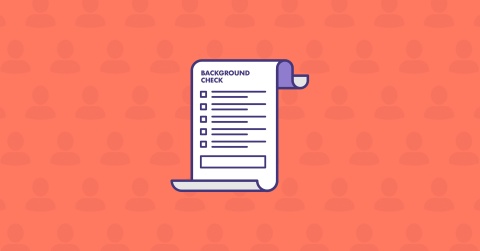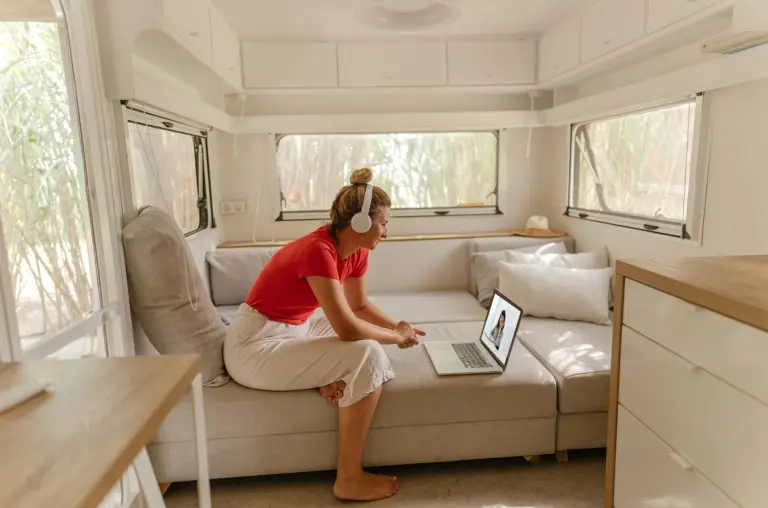Build a global team in minutes
Get expert helpYou’ve found your perfect candidate. They aced the interviews, their skills are exactly what you need, and they’re ready to start. Just one problem: they’re in Brazil, and you have no idea how to run a background check there.
Welcome to the reality of global hiring. What used to be straightforward—checking references, verifying education, confirming work history—becomes a puzzle when your candidate is halfway around the world. Every country plays by different rules, and those rules keep changing.
Some countries won’t let foreign companies touch criminal records. Period. Others make you jump through hoops with local agencies just to verify that someone went to university. In Europe, GDPR means you need specific consent for every piece of data you collect. In Japan, the process looks completely different from the one in Germany. And don’t get us started on the timelines—what takes three days in the U.S. might take three weeks somewhere else.
The result? Your perfect candidate sits waiting while you’re trying to untangle the labor laws. Your competitors who already know the local rules? They’re making offers while you’re still googling “background check regulations in Portugal.”
Here’s the thing: international background checks aren’t impossible. They just require knowing which doors to knock on and which rules actually matter. Companies that crack this code can hire the best talent anywhere without getting tangled in red tape. Those that don’t? They’re stuck hiring locally while their competition builds world-class global teams.
What is an international background check?
An international background check digs into a candidate’s history across every country where they’ve lived or worked. Think employment records from their time in London, education verification from that university in Mumbai, and criminal record checks from their hometown in Toronto. It’s detective work that spans borders—and can cover over 240 countries, depending on where your candidate has been.
Here’s why this matters: that standard background check you run on local hires? It stops at your border. When you hire someone who spent the last decade working in Singapore, your domestic screening won’t tell you anything about those ten years. You’re essentially hiring blind for a huge chunk of their career.
Remote work changed everything. Now you can hire that brilliant developer in Warsaw or that amazing marketer in Mexico City. But with that opportunity comes a challenge: how do you verify their story when their experience spans three countries and two continents?
International background checks fill those gaps. They help you confirm that the impressive resume is real, that the credentials check out, and that there aren’t any surprises waiting to surface after you’ve already onboarded someone. For companies building a global workforce, these checks aren’t just about ticking compliance boxes—they’re about knowing who you’re really bringing onto your team.
The basics of international background checks
There’s never really a “one size fits all” approach to background checks, but the most important thing for you to understand is just how literal that idea really is when expanding a business globally.
In Japan, consent requirements and data protection laws dictate background screening processes. Under Japan’s Act on the Protection of Personal Information, employers can do background checks, including criminal record searches—but they have to get written consent from the candidates. You’ve got to be very clear about what kind of information you need and how you will use it. Employment and education verification remains standard practice when conducted with proper consent protocols.
The same is true of similar tasks, like drug testing. Most countries now require explicit written consent and legitimate business justification for drug testing.
In Japan, criminal background checks require explicit consent and must be directly relevant to the job. Fingerprinting and research into union membership or political views remain highly restricted. Standard practices include education and employment verification, social media screening, and character references, provided that these are conducted with proper disclosure.
Australia permits workplace drug and alcohol testing under strict legal guidelines, particularly for safety-sensitive roles and Work Health and Safety (WHS) compliance. However, health checks and medical screenings, social media and internet searches, and even criminal records checks are standard practices. All screening activities require explicit consent and must comply with Australian Privacy Principles under the Privacy Act.
Ultimately, these are situations where employers may not be familiar with local regulations surrounding background checks and drug screenings—especially during a global expansion. Modern data protection laws, such as the GDPR, have established stricter consent and disclosure requirements that impact screening processes worldwide. There are local providers with whom employers may partner to place them in the best position possible to navigate the complexities of background checks.
How every country makes you jump through different hoops
The complexity of international hiring becomes most apparent when examining how different countries structure their background check requirements. For instance, some countries permit the drug testing of applicants with proper disclosure, while others require a conditional job offer before testing. Below are some of the most stark contrasts among countries and cross-border background checks.
South Africa vs. United States: Criminal verification methods
South Africa requires candidates to provide fingerprints for criminal background verification through the South African Police Service. This physical biometric requirement creates logistical challenges for remote hiring processes. The verification process involves in-person appointments and can take several weeks to complete.
The United States relies on digitized criminal databases that can be accessed through name-based searches without requiring fingerprints. This allows for faster turnaround times and remote processing capabilities that align better with modern hiring practices.
France vs. Singapore: Scope and consent requirements
France strictly limits background checks to information directly relevant to the specific job position. Employers cannot conduct broad screening beyond what relates to essential job functions. This targeted approach requires careful justification for each type of check performed.
Singapore operates under the Personal Data Protection Act (PDPA), which mandates explicit consent for all personal data collection but allows comprehensive screening when properly authorized. The framework emphasizes transparency in data use while permitting thorough verification processes.
European Union vs. Canada: Drug testing restrictions
In Europe, forget about drug testing unless your employee is flying planes or operating heavy machinery. The EU takes a hard line here—if the role isn’t safety-critical, testing is off the table. And those questions about political views or union membership? Don’t even think about it. They’re completely banned across most EU countries.
Canada plays by similar rules but with a twist. You can’t test for drugs or alcohol unless you can prove—really prove—that it directly impacts workplace safety. It’s not enough to say “we prefer a drug-free workplace.” Under PIPEDA regulations, you need concrete evidence that testing is essential for safety. The government puts the burden squarely on you to justify why testing matters for that specific role.
Stop letting background checks slow down your global hiring
You’ve found amazing talent abroad. Don’t lose them because you can’t figure out how to verify their credentials in their home country.
Pebl (previously Velocity Global)’s Employer of Record solution handles the complexity of international background checks across 185+ countries. We know which screening companies to use in São Paulo, which documents you need in Seoul, and how long the process actually takes in Stockholm. While you focus on interviewing and selecting the best people, we handle the verification headaches.
Ready to hire globally without the background check bottlenecks? Let’s talk about building your international team the right way.
This information does not, and is not intended to, constitute legal or tax advice and is for general informational purposes only. The intent of this document is solely to provide general and preliminary information for private use. Do not rely on it as an alternative to legal, financial, taxation, or accountancy advice from an appropriately qualified professional. The content in this guide is provided “as is,” and no representations are made that the content is error-free.
© 2025 Pebl (previously Velocity Global), LLC. All rights reserved.
Topic:
HR Strategies


